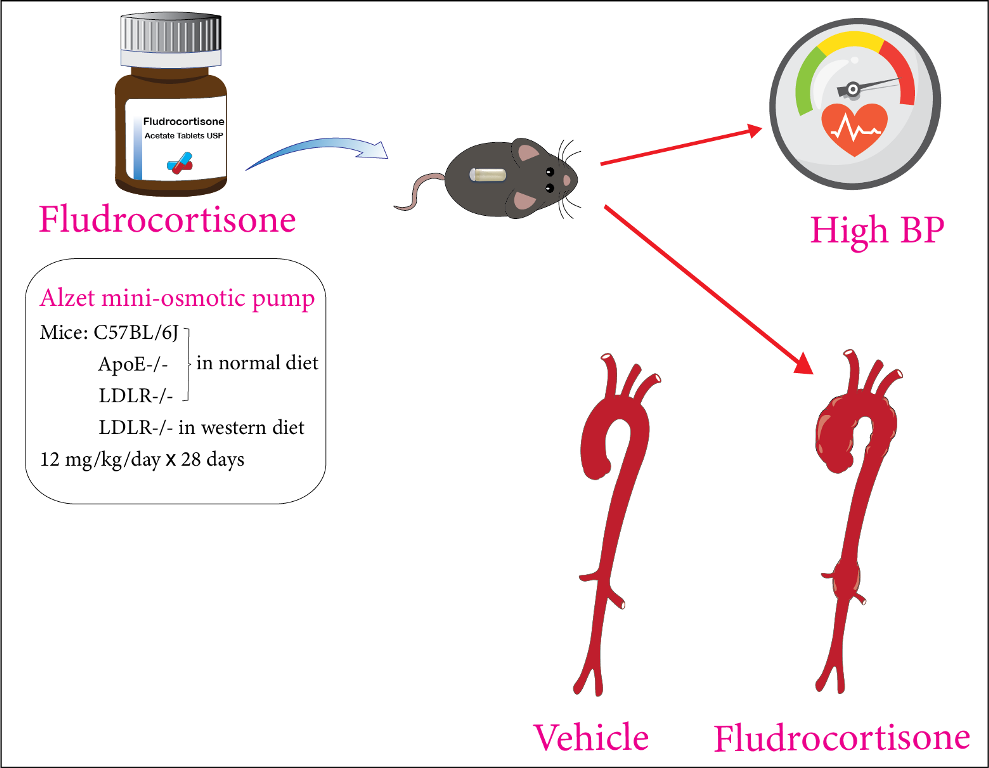Background and Objective: In an experiment designed to explore the mechanisms of fludrocortisone-induced high blood pressure, we serendipitously observed aortic aneurysms in mice infused with fludrocortisone. The purpose of this study was to investigate whether fludrocortisone induces aortic pathologies in both normocholesterolemic and hypercholesterolemic mice. Methods and Results: Male adult C57BL/6J mice were infused with either vehicle (85% polyethylene glycol 400 (PEG-400) and 15% dimethyl sulfoxide (DMSO); N=5) or fludrocortisone (12 mg/kg/day dissolved in 85% PEG-400 and 15% DMSO; N=15) for 28 days. Fludrocortisone-infused mice had higher systolic blood pressure, compared to mice infused with vehicle. Fludrocortisone induced aortic pathologies in 4 of 15 mice with 3 having pathologies in the ascending and aortic arch regions and 1 having pathology in both the ascending and descending thoracic aorta. No pathologies were noted in abdominal aortas. Subsequently, we infused either vehicle (N=5/group) or fludrocortisone (N=15/group) into male ApoE -/- mice fed a normal laboratory diet or LDL receptor -/- mice fed either normal or Western diet. Fludrocortisone increased systolic blood pressure, irrespective of mouse strain or diet. In ApoE -/- mice infused with fludrocortisone, 2 of 15 mice had ascending aortic pathologies, but no mice had abdominal aortic pathologies. In LDL receptor -/- mice fed normal diet, 5 had ascending/arch pathologies, 1 had pathologies in the ascending, arch, and suprarenal aortic regions. In LDL receptor -/- mice fed Western diet, 2 died of aortic rupture in either the descending thoracic or abdominal region, and 2 of the 13 survived mice had ascending/arch aortic pathologies. Aortic pathologies included hemorrhage, wall thickening or thinning, or dilation. Given the low incidence, only ascending aortic diameter in LDLR -/- mice fed Western diet reached statistical significance, compared to their vehicle. Conclusion: Fludrocortisone induces aortic pathologies independent of hypercholesterolemia. The findings in mouse studies have the potential to provide caution to people who are taking or have taken fludrocortisone that could have an increased risk of aortic pathologies.

